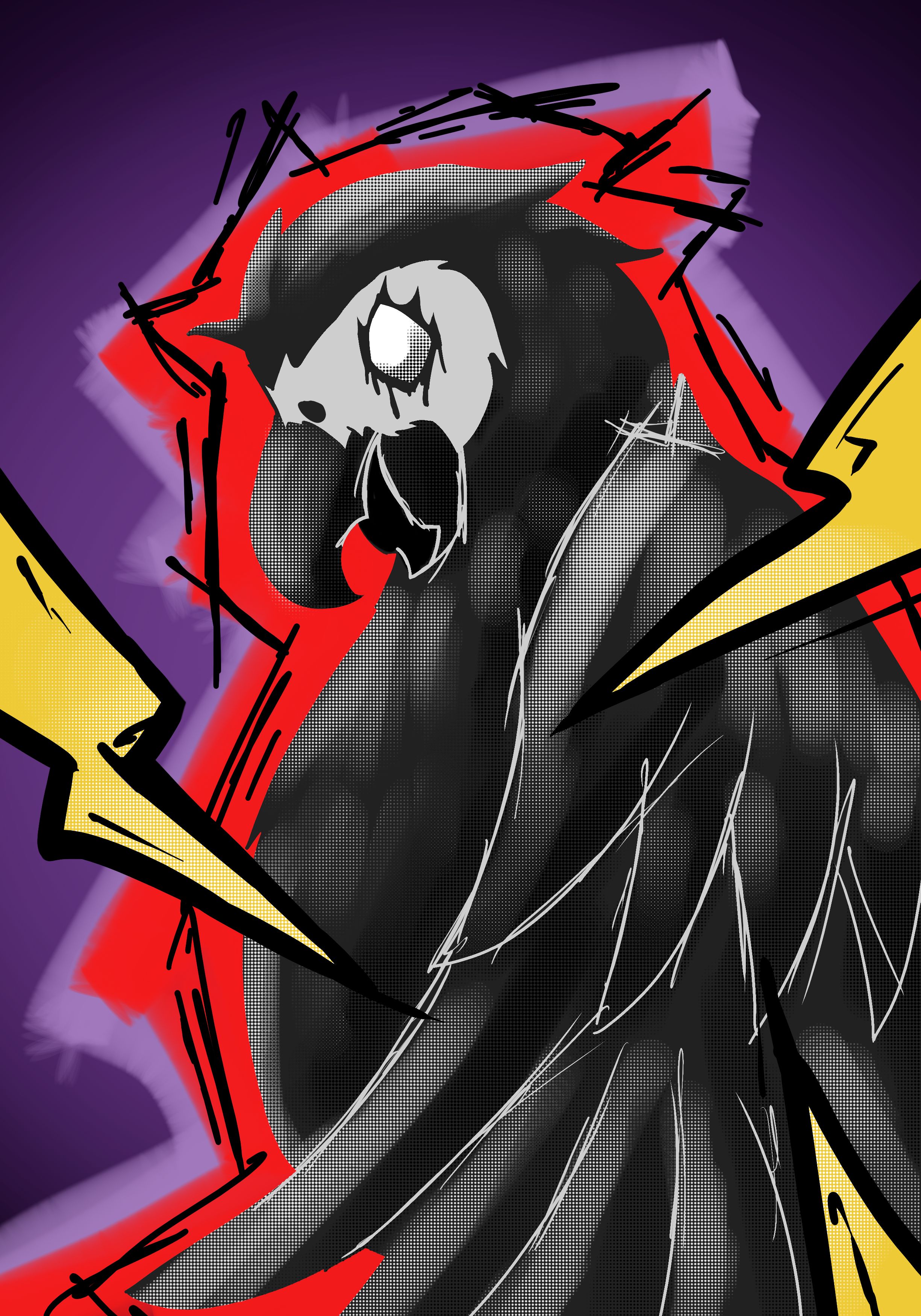Alternatively put, the wolves that don’t have cancer resistance do not survive Chernobyl. I feel like this should be closer to the default way we talk about evolution.
That’s what natural selection is. We focus on those that survived because they developed resistance to something, but it has always meant that everybody else died and the species as a whole has moved forward.
Sure but the headline doesn’t say ‘natural selection caused . . .’ it straight up say ‘Mutant wolves developed resistance to cancer’ did they though? Or was that mutation already present and sudden environment changes cause the other ones to die off?
Cancer-causing radiations don’t cause wolves to develop cancer resistance, they cause wolves to develop cancer. Those that were more resistant survived, those that weren’t didn’t, now we have wolves that are different from those that we had before. They are mutant wolves, but the radiations didn’t make them mutants. The mutation happened before in some wolves, and their descendants survived better than those that didn’t have it. Evolution has always been like that.
So we don’t have wolves that are different from those we had before. We have the same wolves we had before and also we don’t have other wolves we also had before.
“We are the cancer now”
And I for one welcome our Lupine overlords. I’d like to remind them of my long history of caring for their canine cousins and the potential for that to continue long into the future.
40 years seems like a relatively short time for natural evolutionary processes to adapt a mammal to a highly radioactive environment. That’s like 10 to 20 generations of wolf and suddenly they are cancer resistant?
After all the needless loss of life surrounding the Chernobyl reactor explosion, finding viable cancer-resistant genetic mutations would be the ultimate silver lining.
A mutation for having a higher radiation resistance or higher resistance to cancer is something that already happens in nature, but in most of the animal world those are relatively useless traits, normally cancer doesn’t develop fast enough to stop procreation.
In Chernobyl, the highly elevated radiation would normally kill animals before they can even breed. The ones that don’t have the resistance die before they get the chance, the ones that do have a higher resistance breed.
With humans in the modern age, a resistance to cancer or radiation trait never gets the chance to become a dominant evolutionary trait as most all people only develop the cancer later in life and the ones that do get cancer early more and more often can get treatment giving them a chance to procreate even when they got cancer young.
Outside Chernobyl, there is no evolutionary pressure for a trait like that to become dominant.
Living long enough to procreate is the primary drive in nature.
We generally don’t see fast evolutionary changes in nature because nature doesn’t change quickly often.
Leave it to us, humans, to create situations where the change is drastic and quick.
If you have an extremely high infant mortality rate, it won’t take that long. If the radiation kills off a high enough percentage of individuals without cancer resistance it won’t take long at all.
Theoretically you could do it in only 2-3 generations if you had environmental factors that could give 100% of individuals without resistance cancer.Only if you have some individuals with [cancer or whatever] resistance though.
Everyone has “cancer or whatever” resistance. That’s why DNA works, it has repair mechanisms.
Getting cancer is when that mechanism either fails or isn’t good enough to repair the damage.
Abnormal radiation levels can cause an excess of damage or different type of damage than what your natural mechanism is capable of fixing.
We’re constantly being radiated, we’re constantly employing our resistances and defenses against radiation.
We float around on a rock in a sea of radiation and even we ourselves emit low levels of (mostly harmless) radiation.
The thing is, the exclusion zone isn’t uniformly radioactive. The hottest spots are not areas that wild life would normally spend a lot of time near.
Then there’s the fact that the way we’re all taught about radiation and cancer is just flat out wrong. The Linear No Threshold model that most people know was actually created by the Rockefeller Foundation in an attempt to slow the adoption of nuclear power.
Combine those two factors, and you get stories like this, where researchers are shocked that higher than average radiation exposure doesn’t equate to a simple linear increase in cancer rate.
Not that these wolves haven’t developed an increased resistance to radiation. But it’s not a new thing. Every living creature on this planet has mechanisms to repair DNA from radiation exposure. These wolves are simply better at it now than generations past.
High evolutionary pressure + large gene set = fairly rapid adaptation
evolution could happen in jumps. How often that happens is debatable.
“The Mutant Wolves of Chernobyl” seems like a good band name.
“Wolves of Chernobyl” is a song by Municipal Waste, already
No surprise. It’s too good a name.
Thank goodness, someone can inherit the Earth after we kill ourselves.
… wasn’t there basically no additional cancer present in mammals over there?
And even in humans - hasn’t only thyroid cancer spiked in the months after the accident?
Oh, she claims these wolves are genetically different than others (or that all wolves are better at beating cancer?) … I don’t understand that claim. And if that’s true, then why not test DNA/immune system of humans living very near there (The Babushkas of Chernobyl?
Kyle Hill has some pretty good videos on this topic: https://youtu.be/bmVGwOP_zi8?feature=shared
My understanding is that while the fallout from Chernobyl wasn’t very dangerous, and didn’t lead to a noticeable increase in cancer rates, the area around the reactor is still very dangerous due to the debris from the reactor core that’s scattered around.
Chernobyl dogs: “We have developed immunity to cancer”
Pripyat cats: m̴̳̏ẽ̸̥e̸̫͆e̸̋͜o̸̹͝ó̴̫ẅ̸́ͅw̶̧̄
The Chornobyl Exclusion Zone continues to fascinate me, both irl and virtually.









